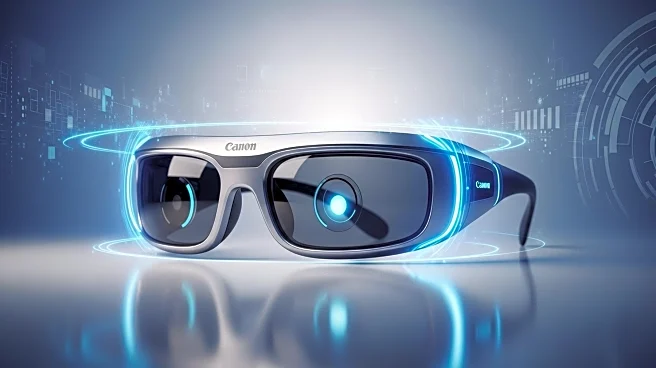What's Happening?
Major tech companies, including Meta and Amazon, are gearing up to revolutionize the consumer technology market with augmented reality (AR) glasses by 2025. Meta has unveiled new Ray-Ban smart glasses featuring built-in displays for app overlays, while Amazon is developing AR glasses codenamed 'Jayhawk' to enhance retail integrations. Apple is also contributing to this shift with its 'Liquid Glass' design, promising thinner and lighter AR optics. The industry anticipates a 39.2% increase in AR device shipments, indicating a significant market expansion. These developments suggest that AR glasses could become mainstream consumer products, offering features like health sensors, retail integrations, and improved user interfaces.
Why It's Important?
The introduction of AR glasses by tech giants like Meta, Amazon, and Apple marks a pivotal shift in consumer technology, potentially replacing traditional devices like smartphones. This transition could redefine how users interact with digital content, offering more immersive and integrated experiences. The anticipated growth in AR device shipments suggests a burgeoning market, with implications for retail, healthcare, and everyday consumer interactions. Companies investing in AR technology stand to gain a competitive edge, while consumers may benefit from enhanced convenience and functionality. However, widespread adoption will depend on overcoming technical challenges and consumer acceptance.
What's Next?
As AR glasses become more prevalent, companies will likely focus on refining technology and expanding applications. Meta and Amazon's continued investment in AR could lead to more sophisticated features and broader market penetration. Apple’s focus on design improvements may attract style-conscious consumers, further driving adoption. The industry will need to address privacy concerns and ensure seamless integration with existing digital ecosystems. Stakeholders, including developers and retailers, will play a crucial role in shaping the future of AR technology, potentially influencing consumer behavior and market dynamics.
Beyond the Headlines
The rise of AR glasses could have profound implications beyond consumer technology, affecting sectors like healthcare, education, and entertainment. The integration of health sensors and AI in AR devices may lead to new wellness applications, while educational tools could become more interactive and engaging. In entertainment, AR glasses could offer novel experiences, blending digital content with real-world environments. Ethical considerations, such as data privacy and the impact on social interactions, will need to be addressed as AR technology becomes more ubiquitous.









